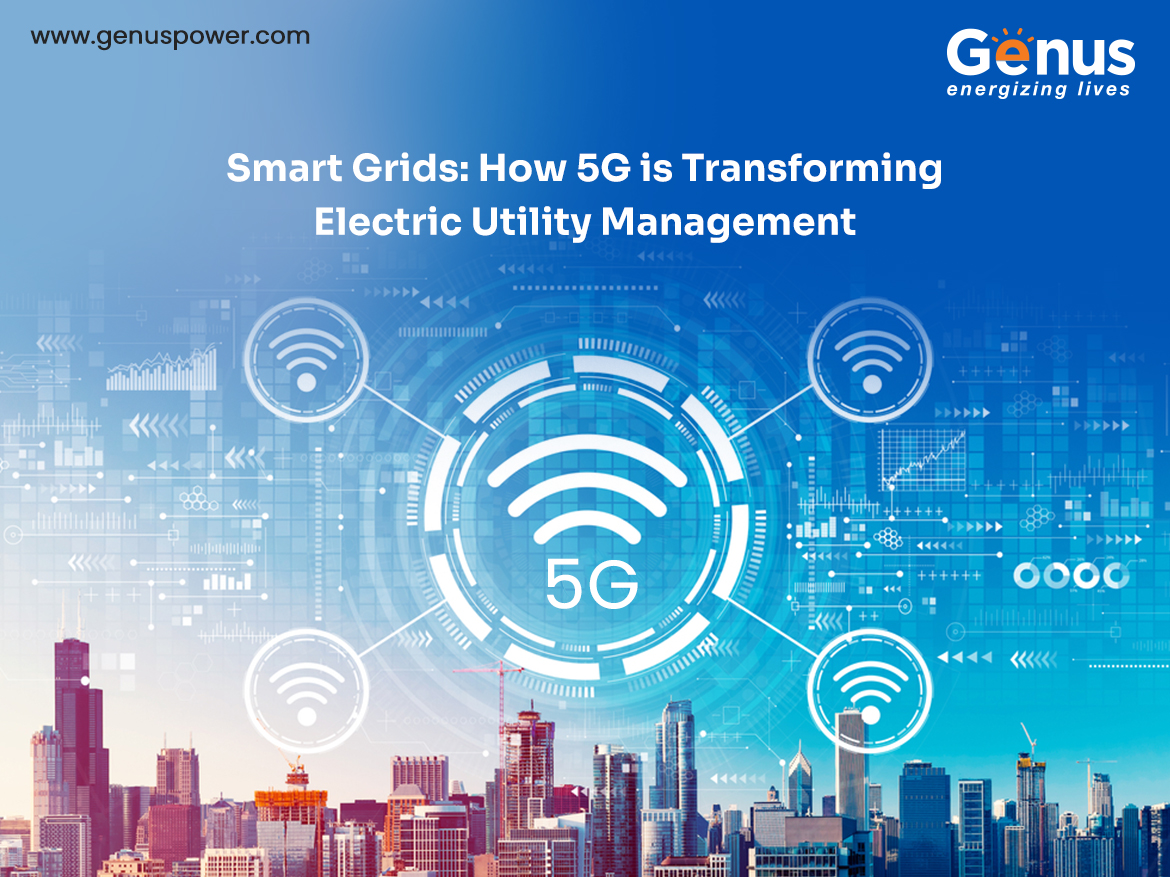
Digital connectivity is critical today, and the limitations of 4G LTE networks are becoming increasingly evident in the way electric utility providers operate. Urban power demands frequently push these networks to their limits, leading to peak-hour slowdowns.
The ever-increasing proliferation of internet-connected devices necessitates a more robust network capable of handling an ever-growing demand. This is where the advent of 5G technology comes into play.
The new fifth generation, or 5G broadband, offers faster network speeds and a more responsive and capable infrastructure. This development is crucial for various entities, particularly electric utility providers & grid operators, to implement and optimize their operations.
The integration of 5G can help ensure sustainable, resilient, and efficient operations. 5G’s potential to enhance cyber-security measures presents an additional layer of significance.
In this blog, we delve into 6 use cases discussing how 5G technology is transforming the operational frameworks for power transmission & distribution companies.
Since 5G offers ultra-low latency and high bandwidth, real-time monitoring and control over the smart grid solutions and networks. This enhanced visibility of the power network serves a critical role in managing and optimizing electricity distribution, detecting faults, and responding to emergency situations.
Smart grid devices and sensors can communicate with the central control system in real time, facilitating better decision-making & efficient operations.
If any issues arise within the grid system, 5G enables smart energy devices to talk to each other for quick resolution. Moreover, the enhanced power network stability minimizes the occurrence of power outages.
Equipped with advanced automation systems, 5G facilitates quicker responses to grid failures, faults, and other disturbances through advanced self-healing mechanisms. Automated switches and sensors detect faults, isolate them, and reroute power to maintain continuous service. This automation helps reduce downtime significantly,which is a crucial factor in enhancing grid reliability and reducing maintenance costs.
5G technology significantly boosts the safety of maintenance workers across electric utility substations. High-speed 5G networks can rapidly transfer data that feeds into high-tech wearable sensors, cameras, and other related devices.
This technology enables information to be collected and spread in real-time, enabling maintenance workers to tackle complex situations seamlessly. Maintenance work can also be tracked and monitored in real-time and warned of immediate dangers.
The idea of predictive maintenance revolves around the ability to pinpoint problem areas and diagnose them before they result in any unanticipated downtime or system failures. Utilities must utilize reliable metering devices like the genus meter to make power networks more resilient. Moreover, they must take critical steps to enable and facilitate predictive maintenance processes.
These initiatives include deploying sensors and IoT devices across the grid network and establishing network behavioral parameters and thresholds. In addition to that, it also includes analyzing the gathered network performance data using AI algorithms to predict potential downtimes for the grid systems accurately. 5G technologies help speed up these processes, resulting in minimal disruptions and downtime while ensuring the longevity of the equipment, too.
A bi-directional grid is becoming popular as more energy consumers become energy producers owing to the growing use of renewable energy and energy storage. Integration of Distributed Energy Resources (DERs) like solar panels and energy storage systems is crucial to building a sustainable energy future.
Utilizing 5G connectivity, electric utility companies can adeptly manage the influx of DERs, ensuring that grid operators can efficiently control the generation and storage of energy from these decentralized sources. This, in turn, enables a smooth integration of renewable energy into the grid, balanced supply and demand, and maximized clean energy resources.
Demand-response programs are becoming increasingly popular. 5G technology is facilitating the fast communication needed to send real-time meeting price information details.
A 5G-enabled smart single or 3 phase meter panel boardor device also provides detailed consumption data. This allows consumers to make informed decisions about their power consumption habits and ultimately save costs. These small but significant practices help optimize energy distribution mechanisms and reduce stress on the power grids during high-demand periods.
When coupled with edge computing, which serves as a vital backbone of 5G networks, it enhances data continuity and reliability. Edge computing lets electric utility >network data coming from different sensors be processed locally, thereby minimizing latency.
In this setting, alerts are sent to the central system whenever there’s any deviation from the normal parameters. This approach reduces the volume of data transmitted over the network, thus minimizing the cost of data and enabling swift communication. In locations with spotty services, when a 5G network disturbance occurs, edge processing can work uninterrupted and send data once the connection is restored.
Read More – Ensuring Efficiency in the Energy Industry with Smart Grid Solutions
From enhancing grid resilience & efficiency to transforming energy consumption patterns, costs, & safety protocols, 5G technology emerges as a crucial enabler. The journey towards building a more sustainable future rests upon incorporating advanced technologies like 5G into our critical infrastructures.
At Genus, we recognize the immense potential of 5G in revolutionizing electric utility management. Our commitment to integrating cutting-edge technologies like 5G into our solutions will drive the future of sustainable & efficient energy management.